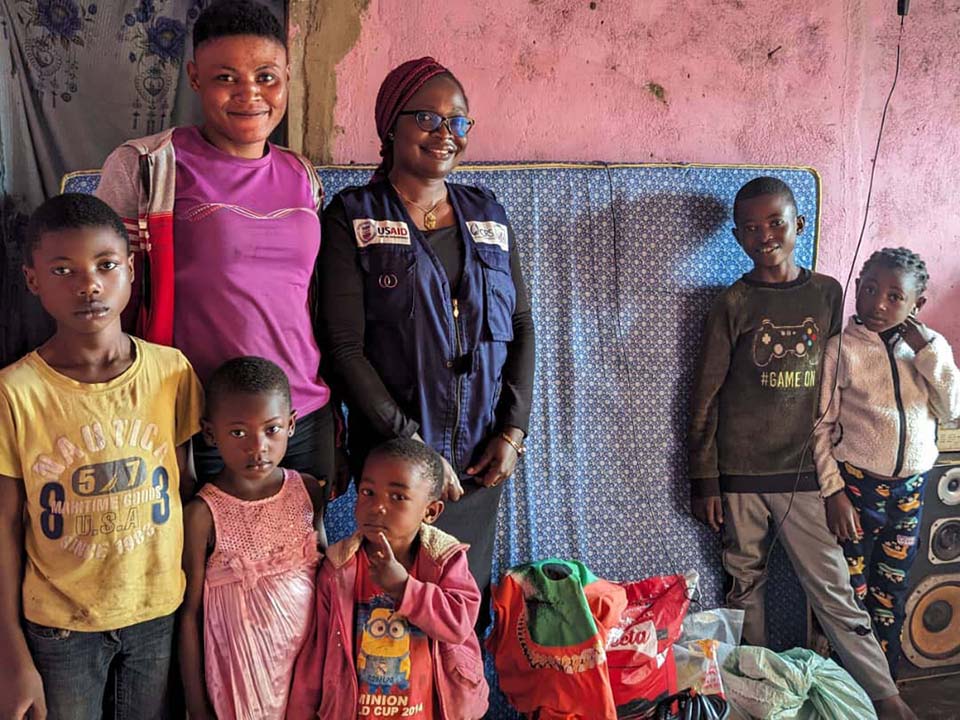
Strengthening Displaced Families in Cameroon
“Eating three times a day became a luxury … I had to create games to distract my children when they got hungry, as I could not bear seeing them crying,” says Marinette Vuchemo. In June 2023, following heightened levels of insecurity in the Northwest Region of Cameroon, Marinette and her five children fled their home in Big Babanaki.
“I moved because I was afraid,” Marinett says. “My children and I were restricted in our movements. We could not carry out our daily activities normally. My husband and I were unable to go to the farm, which was our only source of [food].”
The family resettled in the regional capital of Bamenda, but after their displacement, they found themselves sleeping on the floor of a single room in the home of a distant relative. Food was scarce, with the children only able to receive one or two meals, even on a good day.

Marinett Vuchemo gathers with her children and ACER staff. She recently purchased food and household items at their home in northwestern Cameroon.
Photo by Charlotte Ndum/CRS
Then, in July 2023, one month after fleeing her home, Marinett enrolled in Phase IV of Catholic Relief Service’s Anglophone Crisis Emergency Response, or ACER, project. The current phase launched in the Northwest Region in April 2023, to provide vital assistance to displaced families.
In the latest phase, 100 newly displaced families who missed the initial project registration were identified to access immediate, short-term assistance. These families received electronic vouchers for use in local shops to purchase food and household items, such as cooking pots, mattresses and personal hygiene items to meet their specific needs and ease some of their struggles.
Marinett’s family is one of those households who were enrolled through the rapid registration process for families recently displaced from the Tubah and Belo subdivisions.
“This aid will go a long way to sustain us for at least two months,” she says. During this time, the money we would otherwise use for food will be redirected to acquire other necessities for the children and save towards their preparation for school come September.”
She says she is equally grateful for the fact that she, her children, and husband, can now have a good night’s sleep on the mattress they purchased with the voucher card.
“I am incredibly happy for this assistance as it has put a smile on my face, and I feel hopeful,” she says.
Funded by the U.S. Agency for International Development’s Bureau for Humanitarian Assistance , the Anglophone Crisis Emergency Response IV project is responding to the basic needs of 10,800 individuals from vulnerable internally displaced persons and host families in 19 communities affected by the ongoing crisis in Cameroon’s English-speaking regions. Between April-August 2023, the ACER project has provided households with two rounds of monthly food assistance and a one-time credit to purchase household supplies, while newly displaced populations were recently identified and received a one-time assistance for both food and non-food items. Over 100 households have also participated in training to enable them to launch poultry-raising businesses and become more self-sufficient. Over the past four years, CRS, and the Archdiocese of Bamenda have provided emergency assistance to more than 100,000 people in the Northwest Region thanks to funds from USAID’ Bureau for Humanitarian Assistance.

